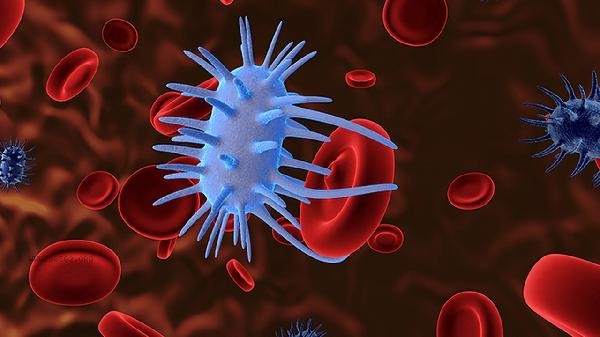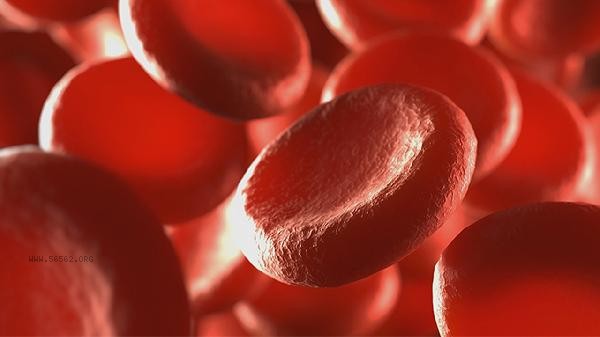The red blood cell volume of 100.7fL is within the normal range and needs to be comprehensively evaluated in conjunction with other blood routine indicators. The normal reference value for red blood cell volume (MCV) is 80-100fL, and slightly higher than the upper limit of 100.7fL may indicate a tendency towards large cell anemia, vitamin B12 or folate deficiency, long-term alcohol consumption, hypothyroidism, myelodysplastic syndrome, and other conditions.

1. Large cell anemia:
Elevated MCV is most common in large cell anemia, where the red blood cell volume generally increases. Typical causes include vitamin B12 deficiency and folate deficiency, which may be caused by long-term vegetarianism, gastrointestinal absorption disorders, or increased demand during pregnancy. The patient may be accompanied by fatigue, glossitis, and neurological symptoms, which need to be diagnosed through serum vitamin B12 and folate testing.
2. Nutritional deficiency:
Vitamin B12 and folate are essential nutrients for the maturation of red blood cells. When lacking, the volume of red blood cell precursors in the bone marrow increases. Long term picky eating, post gastrectomy, Crohn's disease, etc. can all affect absorption. This type of situation can be improved by supplementing corresponding vitamins, but autoimmune diseases such as pernicious anemia need to be ruled out first.
3. Alcohol effects:

Long term excessive alcohol consumption can directly damage the hematopoietic function of the bone marrow, leading to abnormal red blood cell production and increased volume. Alcohol can also interfere with folate metabolism and exacerbate changes in megakaryocytes. After quitting alcohol, MCV usually takes several months to gradually return to normal, and liver function changes need to be monitored.
4. Thyroid function:
Thyroid hormones are involved in hematopoietic regulation, and patients with hypothyroidism may experience mild elevation of MCV. These patients often have symptoms such as fear of cold and constipation, and thyroid function tests show elevated TSH levels. After supplementing thyroid hormones, red blood cell parameters can gradually return to normal. 3. Bone marrow abnormalities: Hematological disorders such as myelodysplastic syndrome can lead to pathological hematopoiesis, characterized by elevated MCV and uneven red blood cell size. This type of disease is more common in the elderly and needs to be diagnosed through bone marrow puncture. Peripheral blood may have abnormal white blood cells or platelets, requiring specialized evaluation in hematology.
It is recommended to improve the detection of reticulocyte count, serum iron metabolism, vitamin B12, and folate levels. Pay attention to a balanced diet in daily life, and increase the intake of foods rich in vitamin B12 and folate such as animal liver and dark green vegetables in moderation. To avoid long-term alcohol abuse, patients with hypothyroidism need to take medication regularly. If accompanied by persistent fatigue, pale skin and mucous membranes, or neurological symptoms, timely medical attention should be sought from the hematology department. Regularly review blood routine to dynamically observe changes in MCV, and conduct further examinations such as bone marrow cytology if necessary.










Comments (0)
Leave a Comment
No comments yet
Be the first to share your thoughts!